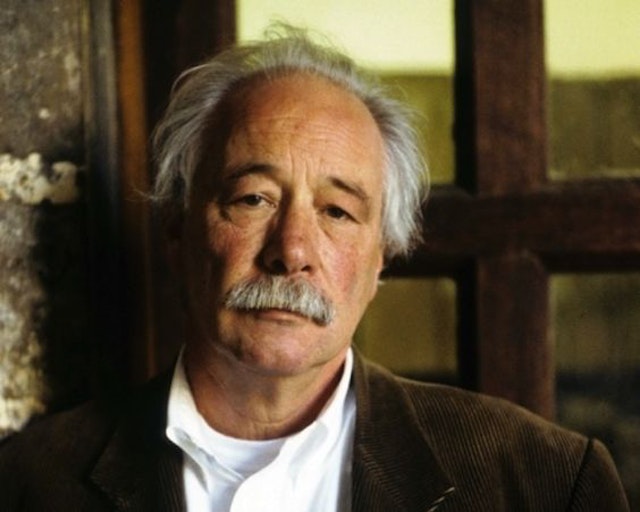
At the end of 2019, the German Sebald Society was founded in Allgäu, the former home of the world-famous writer W. G. Sebald. Since then, the Society has announced a literature prize endowed with EUR 10,000 and is planning a conference, due to take place in the autumn of 2020. A discussion with the first and second Chairs of the Society, Ricardo Felberbaum and Kay Wolfinger respectively, outlines the activities.
The German Sebald Society was founded last year. What are the aims of the Society?
Ricardo Felberbaum (Chair, Kempten im Allgäu): The German Sebald Society wants to enhance the awareness in Germany of W.G. Sebald and his writings as one of the most important representatives of German post-war literature.
Why was the Society founded at this time?
Felberbaum: Sebald’s writing was an extraordinary experience for me. Although having been mentioned to me in 2004, it was as late as 2014 that I first got to know his writings, finding Austerlitz in the translation of Andrea Bell in one of Kempten’s bookstores. His writings, topics, and his way of writing left me deeply impressed. And I could not understand how this voice, really vibrating in my soul, had been almost totally silenced not just in his native region, but also in Germany as a whole. His work was scrutinised in professional circles of German literature, but in the overall population, and even in those parts of German society that may be called educated, he is not a well-known figure. This seemed to me unbearable. Thus the idea of a literature competition arose in my mind, dedicated to the topic of ‘memory and commemoration’, inviting everybody to start a search of lost time. In fact, this idea was born in a small market place in Elizondo, a very remote place in the Basque Pyrenees. Everything started there. Obviously, it was of utmost importance to found a society dedicated to Sebald and his writing, to build up such a literature contest, and to grant a long term perspective to the contest.
Is there anything new to discover with W.G. Sebald, almost twenty years after his death?
Kay Wolfinger (Second Chair, Munich University): W.G. Sebald is an author who has been able to unite an incredible interest in literary studies for about two decades, therefore research has become almost unmanageable. But such a complex and artistically powerful œuvre as that written by W.G. Sebald is inexhaustible. Its history of motifs and its richness of themes can always be explored and interpreted anew in the context of the respective time. The projects we are planning for 2020 and for 2021, the 20th anniversary of Sebald’s death, will show how Sebald’s legacy can be carried on. The W.G. Sebald Literature Prize, which was open to the public, aroused a tremendous response. The prize jury includes Hans Jürgen Balmes (S. Fischer Verlag), Prof. Claudia Öhlschläger (Paderborn University), Prof. Jürgen Ritte (Université Sorbonne Nouvelle Paris) and Marie Schmidt (Süddeutsche Zeitung), as well as myself. The prize will be awarded within the framework of a literary conference which will focus on Sebald and his consequences, as far as the current pandemic allows, and there will also be various activities in 2021.
On the one hand, the Sebald Society is located in the Allgäu, the region in which Sebald grew up, but on the other hand Sebald is an international author, not only because he lived and wrote most of his life outside of Germany, but also because his English-language reception made him known worldwide. How does the Sebald Society feel about this tension between regionality and internationality?
Felberbaum: Sebald is a singularly fine phenomenon in German literature. We are very well aware of this and we want to redirect this international reception of his writing into an open discussion within German society. This, at least in part, coincides with the current intentions to find – 75 years after the end of world war II – a new insight in this darkest time of German history. But obviously the scope of Sebald’s writing is much broader than to be restricted to the time of the Third Reich.
Sebald’s writing is part of world literature. Without any doubt it resembles an intellectual heritage for all countries and people. We are therefore getting in touch with Sebald societies in other countries such as Sweden but it is of utmost importance to highlight the fact that without his being born in the Allgäu and his experiences in this remote, beautiful, but also intoxicated region, Sebald would never have become the writer he was.
How can people become involved in this Society?
Felberbaum: Anyone can become a member of the German Sebald Society. The application form can be found on the homepage of the society. Everybody interested in Sebald and his writings is very welcome. It is an open society, not a closed shop and it’s a society both for professionals and for amateurs such as me.
How would Sebald himself have felt about the idea of a literary society dedicated to him?
Wolfinger: W.G. Sebald has exhibited his modesty in his shyness to even call himself a writer, but it is a modesty that is only partly to be trusted. Although he was probably convinced of the quality of his literary work, a literary society named after himself would likely have been rather unpleasant to him. But we do not make a cult out of Sebald and are especially less interested in him as a private person than as an author. W.G. Sebald, I am convinced, would have recognised the value of a literary society that would disseminate his work more widely, promote scientific research and, above all, help to make it accessible again for the coming period in its power of fascination and fruitfulness.
Kay Wolfinger, Chair of the Sebald Society, Ludwig Maximilian University of Munich
